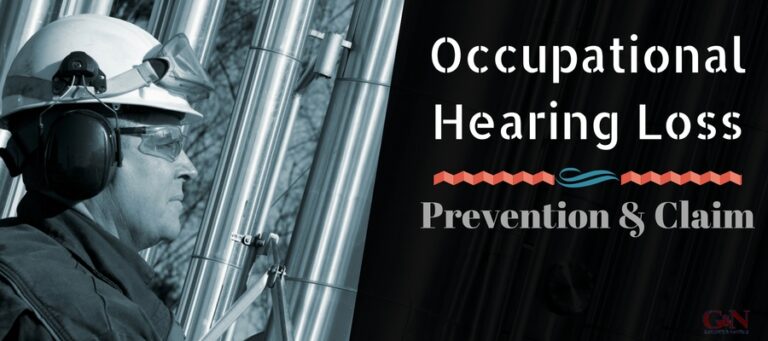What Is Occupational Hearing Loss and How It Happens?
Occupational hearing loss prevention and claim is the term coined for the hearing loss occurred at workplace due to certain jobs where people are exposed to high level of sound levels. It is one of the most hazardous and pervasive health problems in the US. It is estimated that approximately 30 million workers are exposed to high sound levels each year, which could be detrimental to their ears.
What Is a Safe Decibel Level and How Loud Is 85 DBA?
The amplitude of the sound indicates how strong the wave is. It is measured in decibels (dBA). Sounds higher than 85 dBA are harmful to your ears and can permanently damage them if you are exposed to them over an extended period. One-time exposure to sounds at or above 120 dBA can cause hearing loss.
According to the doctors, 65 dBA is normal as it is the amplitude of the normal speaking voices.
What Is Noise Exposure?
Long term exposure to very high levels of noise causes hearing loss that can’t be treated. Short-term exposure to high levels of noise causes a temporary damage to your ears ringing or buzzing sound in your ears.
When Is Hearing Protection Required?
A hearing protection device is acceptable when the work requires the workers to go through a high sound level and when controlling it is not feasible. Ear muffs and ear plugs are examples of hearing protection devices.
Prevention and Claim of Occupational Hearing Loss
You can take precautions at your workplace to prevent hearing loss. Here are some important tips to reduce the risk:
- Source of Noise: It is very important to know the source of the sound. If you know the source is located nearby, the volume can hopefully be controlled.
- Use of Disposable Ear Plugs: Companies, where loud noise is a part of the manufacturing process, should offer the employees ear plugs. In the long run, it will reduce the employee’s risk of hearing loss.
- Sound Proof Headsets: If the ear plugs are not of much help, choose sound proof headsets. These can fully cover your ears. It can be a better choice and offers more protection to your ears.
- Reduce the Exposure Limit: If you work in a high noise environment, avoiding high volumes would be the best option. You should try to keep the TV and stereo sound at a moderate level.
- Visit the Doctor: Your doctor can find out whether hearing loss has occurred or not. Keep visiting a doctor every 5-6 months.
Occupational Hearing Loss Worker’s Compensation Benefits
If you are suffering from occupational hearing loss, you can file a claim to get the worker’s compensation benefits for hearing loss so you can be properly cared for.
- Even if your hearing loss occurred just months after you started working in a loud workplace, you are still eligible for compensation benefits.
- You should apply as soon as you develop hearing loss. The more you delay, the longer it will take to get the claim.
- You are still eligible to file for worker’s compensation for hearing loss even if you left your company or got laid off.
- Consult a doctor to check the level of damage done to your hearing in order to proceed with the claim process. Sometimes mild cases also get the opportunity for benefits.
These tips will help you prevent hearing loss at workplace and claim the occupational hearing loss compensation successfully.
Gaylord and Nantais, based in Long Beach, California, is a leading law firm that helps workers file their occupational hearing loss claim.











